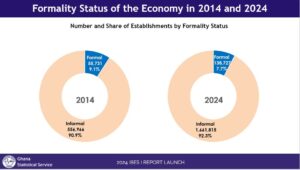
Love is often described as one of the most powerful and complex human emotions, but it is not always as straightforward as it seems. While we tend to associate love with deep, meaningful connections, many people find themselves confusing it with other emotions that feel intense and overwhelming but are not quite love.
Emotions such as limerence, lust, infatuation, and attachment can easily be mistaken for love, especially in the early stages of a relationship. Let’s explore these emotions and how they differ from true, lasting love.
1. Limerence: The Obsessive Infatuation
Limerence is an intense emotional state characterised by obsessive thoughts and feelings toward another person, often accompanied by an overwhelming desire for reciprocation. It’s a kind of emotional rollercoaster where the person experiencing it is constantly preoccupied with the object of their affection, obsessively wondering whether their feelings are returned. Unlike love, which develops and deepens over time, limerence is more about idealisation and fantasy. It’s marked by feelings of euphoria when things seem to go well, but also deep emotional turmoil when there’s uncertainty or rejection.
People in a state of limerence may mistake their intense longing and emotional highs as love. However, the difference lies in the lack of emotional stability and the absence of a deeper, more meaningful connection. Limerence tends to fade when the initial excitement wanes or when the reality of the relationship doesn’t match the fantasy they’ve built in their minds.
2. Lust: The Desire for Physical Attraction
Lust is an intense, often all-consuming desire for physical intimacy or sexual attraction. It is primarily driven by physical attraction and the desire for sexual fulfilment. While lust can feel exciting and passionate, it does not involve the emotional depth or the long-term commitment associated with love. Lust tends to be immediate and focused on physical appearance and desire, often without any emotional connection or long-term intention.
Although lust can play a role in romantic relationships, it is not the same as love. Love involves emotional intimacy, trust, and a desire for the well-being of the other person, whereas lust is more self-centred, driven by the need for personal gratification. Many people, especially in the early stages of a relationship, may confuse lust for love, believing that physical attraction equates to deeper emotional connection.
3. Infatuation: The Intense but Shallow Fascination
Infatuation is often seen as the intense, short-lived passion or admiration for someone, typically characterised by strong feelings of attraction and admiration that may seem to come on suddenly. Infatuation is typically focused on surface-level qualities such as appearance, status, or charm, and tends to burn bright but burn out quickly. While it can feel like love in the moment, infatuation is usually shallow and based more on fantasy than reality.
The key difference between infatuation and love is that love involves deep emotional connection, trust, and respect that grows over time. Infatuation, on the other hand, is often fleeting and more self-centred, driven by the desire to feel special or validated. Infatuation can also be a projection of one's desires and expectations rather than a true connection with the other person.
4. Attachment: The Comfort of Familiarity
Attachment is an emotional bond that develops from familiarity and a sense of security. It often arises from long-term relationships, particularly when people rely on one another for comfort, support, and companionship. While attachment can be a component of love, it is not the same as love. Attachment is often about feeling comfortable and secure with someone, rather than a deep, passionate connection.
People often mistake attachment for love because they feel a strong desire to maintain the relationship, especially if it has been long-lasting. However, attachment can also occur in unhealthy or unbalanced relationships, where one person may feel an overwhelming need to stay with the other out of fear of loneliness or dependency. Unlike love, which involves mutual respect, care, and growth, attachment can sometimes be based on emotional dependence or fear of being alone.
While limerence, lust, infatuation, and attachment can all feel intense and may be mistaken for love, they are distinct emotions with their own characteristics and motives. Limerence is driven by obsessive thoughts and fantasies, lust focuses on physical desire, infatuation is a fleeting fascination, and attachment can stem from the comfort of familiarity. True love, however, is a deep, enduring connection that involves mutual respect, emotional intimacy, trust, and care.
Understanding these distinctions can help people navigate their emotions more clearly and recognise when they are truly experiencing love, as opposed to a passing or surface-level feeling. Love, after all, is built on a foundation of trust, commitment, and respect—qualities that go beyond mere attraction or obsession.
Read Full Story






















Facebook
Twitter
Pinterest
Instagram
Google+
YouTube
LinkedIn
RSS